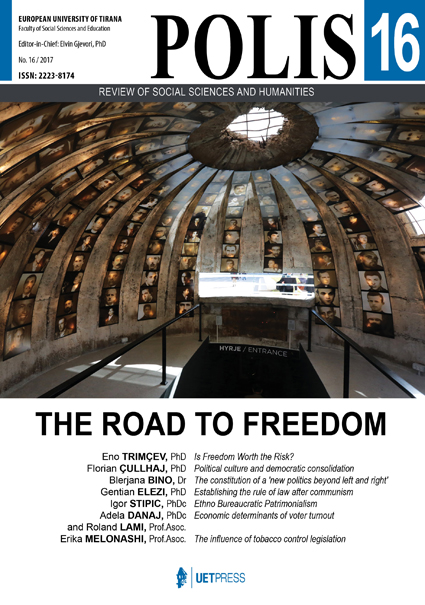Ethno Bureaucratic Patrimonialism: The Political Regime of Bosnia-Herzegovina
Ethno Bureaucratic Patrimonialism: The Political Regime of Bosnia-Herzegovina
Author(s): Igor StipićSubject(s): Politics / Political Sciences, Civil Society, Political history, Government/Political systems, Developing nations, Political behavior, Political psychology, Politics and society, Post-Communist Transformation, Sociology of Politics
Published by: Shtëpia botuese “UET Press”
Keywords: Bosnia-Herzegovina; Ethno Bureaucratic Patrimonialism (EBP); Informal Institutionalization; Democratic Consolidation; Ideological Hegemony; Civil Society;
Summary/Abstract: This article, by following theories of informal institutionalization and not of democratic consolidation, aims at conceptualizing the existing post-Dayton or post-transitional political regime in Bosnia-Herzegovina (BH). The study applies a structural approach to regime building, identifying the set of institutionalized rules structuring the interaction of the political power center and its relation with the broader society. The first part of the article explains the specificities of both first and second transition in BH and identifies its main actors, thus setting the conditions for posterior analysis. The second part of the article elaborates on the existence of ethno-national hegemony in BH socio-political space, and examines the importance of bureaucratic office and its patrimonialization for the structuring of what we define as Ethno Bureaucratic Patrimonialism (EBP). Towards the end, the analysis is completed through inclusion of both possibilities and realities of civil society development inside of this informally institutionalized regime whose most palpable characteristic is the inexistence of a protective state and the arbitrary rule of power.
Journal: Polis
- Issue Year: 2017
- Issue No: 16
- Page Range: 91-116
- Page Count: 26
- Language: English

